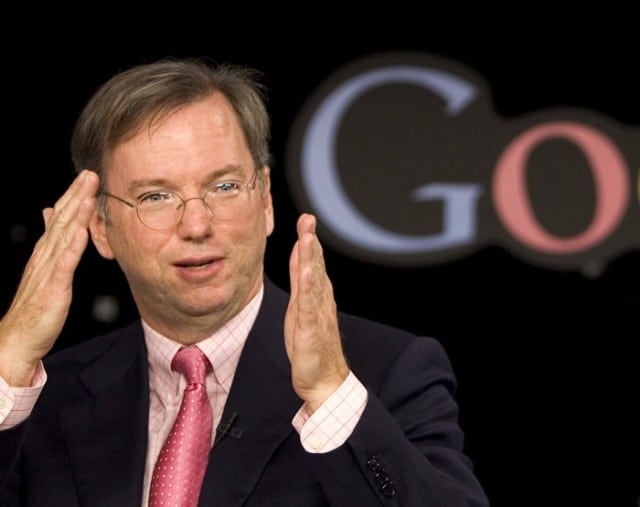
He may no longer run the show, but Google’s Eric Schmidt still appears to serve a valuable purpose to the company as executive chairman – he is talking in public with industries often suspicious of The Big G.
The latest will be delivering the prestigious MacTaggart lecture at this year’s MediaGuardian Edinburgh International Television Festival in August.
Google (NSDQ: GOOG), which recently sponsored same MediaGuardian’s SxSW coverage, will also join it as joint headline sponsor for the festival, at a time when YouTube’s TV and movie plans are gathering pace.
It was Schmidt, long the “adult supervision” to Larry Page and Sergei Brin, who announced One Pass to the publishing community in Berlin in February.
Google’s YouTube is embarking on a growth phase, hiring execs worldwide and “supercharging content creation” by acquiring Next New Networks, plus reportedly aiming to commission original content for new video channels.
Google is also working to improve Google TV’s image, after a year in which it launched the product only to be blocked by some U.S. networks. Schmidt speaking at Edinburgh is Google cosying up to the UK TV community.
Previous MacTarggart keynotes have been James Murdoch, Rupert Murdoch and BBC director-general Mark Thompson, but Schmidt will be the first speaker from a technology company.
A better communicator than Google’s super-engineers Page and Brin, Schmidt is the polite face not of a programmer but of someone, Google hopes, non-technology companies can do business with. Perhaps unusually for one who was himself also an engineer, Schmidt is also Google’s traveling, bespectacled visionary, using this earlier Berlin speech to prophesy eternal memory, an end to loneliness and voice-controlled TV.
And Schmidt may have more luck this summer than had Google tried this TV outreach three years ago, when the boss of the UK’s leading commercial broadcaster, ITV (LSE: ITV), called Google a “parasite” for hosting TV material. Now, three of Britain’s main networks distribute catch-up TV through YouTube.